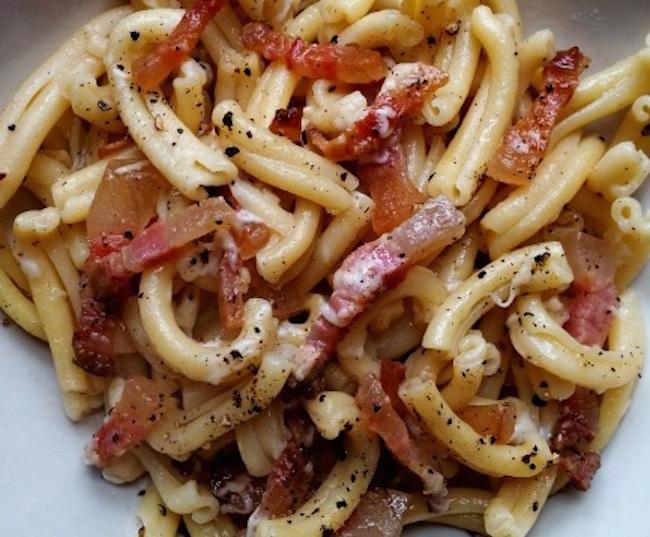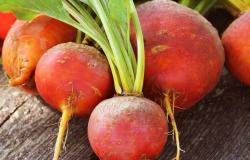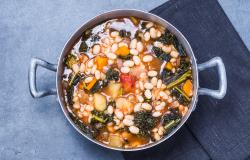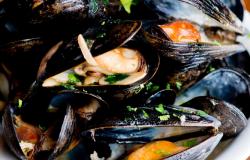Recipe of The Week: Pasta alla Gricia

by Amy Gulick of The Bittersweet Gourmet
Alla gricia, considered by many the antecedent to all’amatriciana and alla carbonara, is a pasta sauce from Lazio made with three ingredients: guanciale, pecorino romano, and black pepper. Get your hands on quality versions of these items, and you can’t go wrong.
Like so many Italian dishes, the story of alla gricia is one of unverifiable origins and competing claims. For some, this is a sauce the people of Amatrice took with them when they moved to Rome, modifying it with the addition of tomato to give us the now-famous all’amatriciana. Others say the sauce comes from Grisciano, a small town in the Accumoli district not far from Amatrice; while yet another, broader theory credits the shepherds of the Lazio region with inventing the sauce. The leading hypothesis, however, points to the word gricio, a 15th-century Roman term for bread-maker, which in turn is derived from i Grici, the Roman name given to immigrants from the Swiss Canton of Grisons (or Cantone de’ Grigioni in Italian). The canton takes its name from the Grey League (Lega Grigia), one of three 14th-century leagues that formed the canton whose members were known for wearing simple clothing, grey in color. Romans used the word griscium to indicate as well the grey coats worn by members of the arte bianca, the bakers’ guild. In time, as bakers apparently had a reputation in Rome for being poor dressers, with or without their trademark griscium, the term gricio came to mean oaf, hick, rube—a shabby man, in short.
Though short on style, the Grici were unquestionably skilled bread-makers, and they maintained a stronghold on the Roman arte bianca for some time. By the 19th century, gricio had acquired an even more generic meaning, as a label for immigrants from German and Swiss regions generally, and even those from northern Lombardy. Having by this time expanded into other fields, such as the minor guild of the oliandoli—oil vendors who also dealt in all manner of kitchenware, food sundries, and provisions—the Grici saw their reputation in Rome degenerate further. Already considered crude mountain people, and resented for their independent, frugal ways, the Grici gave credit in the form of small though very precise loans, and as meticulous creditors had the habit of nailing up credit slips in their shops. They kept later hours than members of other guilds, to collect the petty debts owed them; and a charcoal stove present in the bottega allowed them to cook and eat their meals without closing up for breaks. Perhaps this saying in Roman dialect best sums up the common view of the Grici: ‘Er Gricio, si nun fosse rafacano sarebbe puro bbono.’ Roughly: ‘This Gricio, he’d be all right if he weren’t such a miser.’
Requiring as it does small quantities of select ingredients to create a superb flavor, alla gricia certainly yields maximum returns. So perhaps we are all indebted to the reputedly parsimonious Grici for giving us this brilliant dish.
Start the pasta water, and salt it lightly as the sauce ingredients are very salty already. Slice the rind away from the guanciale and then slice it into circa 1-centimeter thick slices lengthwise, then into smaller strips. Cook on very low heat in a large saucepan, stirring occasionally, until the fat has melted and turned transparent. Grind in a good amount black pepper. Now add a ladle-full of the hot pasta water and stir. When the pasta is ready, scoop it out and combine well with the sauce. Add in the grated cheese and a bit more ground pepper if needed.





